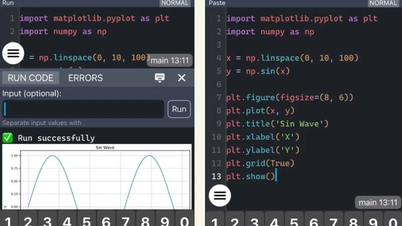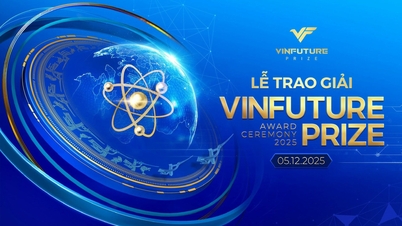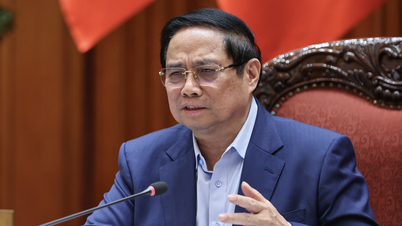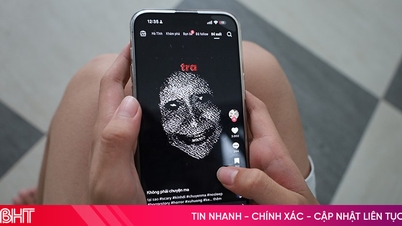The initiative, called the National Academy for Teaching AI, is a $23 million program sponsored by Microsoft, OpenAI, Anthropic, along with the American Federation of Teachers (AFT) and the New York City Union of Teachers (UFT).
The group plans to build an AI training program for teachers, including workshops, online courses, and live training sessions designed by AI experts and educators .
Teaching will begin this fall. AFT aims to train 400,000 teachers, or about 10 percent of the nation’s teaching workforce, over five years, and indirectly improve the skills of more than 7.2 million students.
The program not only grants certificates but also integrates educational credits (CEUs), encouraging teachers to use AI to personalize lessons, support weak students, reduce workload and create creative thinking.

400,000 American teachers will be trained in AI in the next 5 years, millions of students will benefit.. (Source: tech.asu.edu)
Over the next five years, Microsoft has committed to investing $12.5 million in training, while OpenAI will contribute $10 million, including $2 million in in-kind contributions like access to computing resources. Anthropic alone plans to spend up to $500 million in the first year alone, with the potential to continue investing more in the future.
Participating tech companies also benefit from the opportunity to gather feedback from teachers and disseminate their AI tools. Similar educational partnerships have been successful for tech companies in the past, such as the widespread use of Google’s Chromebooks in classrooms.
The new academy hopes to create a national model for how schools and teachers can integrate AI into their curricula without adding to the already overwhelming administrative burden on the education sector.
Bringing AI into the classroom: Opportunity or challenge?
The announcement comes as schools, teachers, and parents are grappling with how to approach AI in the classroom. Many educators want students to have access to technology that is transforming the job market, while teachers themselves can use AI to automate some tasks and spend more time with students.
However, AI also raises ethical and practical questions, the core of which is: If students use AI to do homework and teachers use AI to prepare lesson plans or grade papers, where is the line between supporting learning and abusing it?

According to Gallup, 6 in 10 educators use AI tools and report saving an average of six hours per week. (Source: eSchool news)
Some schools have banned the use of AI in the classroom, while others have embraced the technology. In New York City, the Department of Education banned ChatGPT from school devices and networks by 2023, before reversing the decision months later and establishing an AI policy lab to study the technology’s potential.
According to Forbes, a series of universities in the US such as Arizona State University and California State University have signed cooperation agreements with OpenAI to bring ChatGPT into teaching for students. The Trump administration is also encouraging educators to widely apply AI in schools. However, in reality, AI is not really ready to become a "star" in education.
“AI offers enormous potential but also challenges, and it is our responsibility as educators to ensure that AI serves students and society, not the other way around,” said Randi Weingarten, president of the American Federation of Teachers (AFT).
“The academy will be a place for teachers and school staff to learn about AI not only how it works, but how to use it intelligently, safely and ethically,” she also stressed.
It is impossible to equip students with skills without empowering teachers.
Speaking at the program launch event in New York, Chris Lehane, OpenAI's global director, emphasized that the training content will include both fundamental knowledge of AI and instructions on using specific tools from Microsoft, OpenAI and Anthropic.
He believes that teachers are not only learners but can also directly participate in developing AI products in the future.
“In K-12, how do we ensure that students are equipped with the skills they need to succeed in the so-called intelligence age?” Chris Lehane shared, emphasizing that “this can only be done if we empower teachers to lead the journey.”
Source: https://vtcnews.vn/my-mo-hoc-vien-ai-quoc-gia-hang-tram-nghin-giao-vien-len-lop-hoc-cong-nghe-ar953507.html



![[Photo] National Assembly Chairman Tran Thanh Man attends the VinFuture 2025 Award Ceremony](/_next/image?url=https%3A%2F%2Fvphoto.vietnam.vn%2Fthumb%2F1200x675%2Fvietnam%2Fresource%2FIMAGE%2F2025%2F12%2F05%2F1764951162416_2628509768338816493-6995-jpg.webp&w=3840&q=75)
![[Photo] 60th Anniversary of the Founding of the Vietnam Association of Photographic Artists](/_next/image?url=https%3A%2F%2Fvphoto.vietnam.vn%2Fthumb%2F1200x675%2Fvietnam%2Fresource%2FIMAGE%2F2025%2F12%2F05%2F1764935864512_a1-bnd-0841-9740-jpg.webp&w=3840&q=75)




































































































Comment (0)